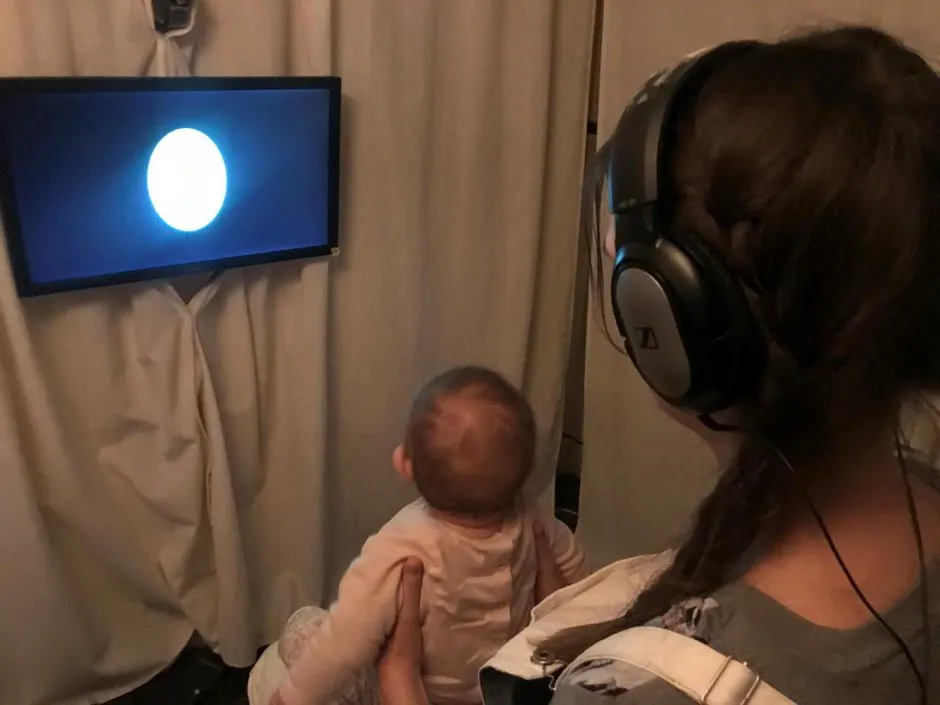- Infants as young as eight months are able to build "rudimentary representations of grammar".
- Results suggest they are learning grammar at the same time they learn words.
- The study observed how long babies looked at circular displays associated with a made-up word.
Babies can understand the basics of grammar months before they start speaking, scientists have said.
Researchers in France have found that infants as young as eight months are able to distinguish between function words – such as articles, pronouns or prepositions – and content words, which include nouns, verbs or adjectives.
The team from the University of Paris say their findings, published in the journal Current Biology, show babies are able to understand grammatical construction much earlier than thought, even though they do not start stringing words together until they are around two years old.
Read more about how babies communicate:
- Babies in bilingual homes ‘33 per cent faster' at switching between tasks
- AI created to translate babies’ cries
- The mystery of language: how children learn to speak their mother tongue
Dr Judit Gervain, a researcher at the Integrative Neuroscience and Cognition Centre at the University of Paris, told the PA news agency: “It is often believed that grammar is something complicated that babies learn once they know a large number of words.
“Here, we show that they already start learning the grammar at the same time as they start learning words.”

The researchers recruited 175 eight-month-old babies from French-speaking households as part of their study.
The infants listened to a four-minute recording of a made-up language in which frequent words, imitating function words, alternated with rarer ones, emulating content words, in six different grammar-learning experiments.
The babies’ word preferences were evaluated by observing how long they looked at circular displays associated with the made-up word.
Read more about language:
- Linguistics: 7 language science books to help you finally understand what comes out of your mouth
- ‘Evolutionary history’ of sign language uncovered
- What artificial languages can tell us about ourselves
Dr Gervain told PA: “We used the head turn preference procedure, which involves a baby sitting on a care-giver’s lap and looking at looming circles in front of them and on each side.
“We measured how much time an infant spends looking at the circle – which is our indirect measure of how much attention they pay to the sound.”
The researchers found their young test subjects understood that function words were more frequent and came before content words.
Results show the infants were able to quickly adapt to new content words but showed little interest for newly introduced function words.
Writing in their paper, the researchers noted: “Our findings suggest that eight-month-old infants are sensitive to frequency and positional information in the language input.
“Moreover, they use this information to build rudimentary representations of grammar.”
Reader Q&A: Why do we raise our voice pitch when we speak to babies?
Asked by: Dan Bradshaw, Cheltenham
Baby talk or ‘motherese’ is nearly universal in human cultures and also found in Rhesus monkeys. It is characterised by generally higher pitch, greater pitch variation and a more musical rhythm and tone.
Research has suggested that this exaggerated emphasis may help infants learn the sound patterns to develop speech or increase attention when parents are warning of dangers.
Read more:
